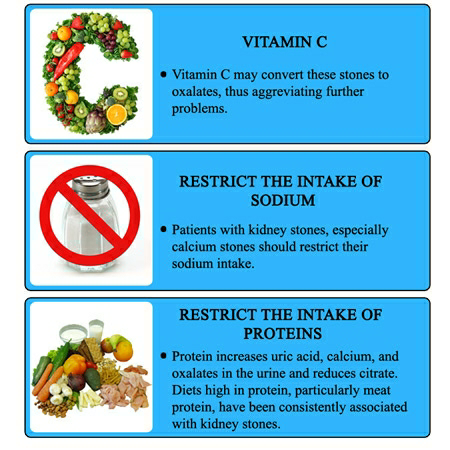How To Prevent Kidney Stones?
To help prevent future kidney stones, you also need to know what caused your previous kidney stones. Once you know what type of kidney stone you had, a health care professional can help you make changes to your eating, diet, and nutrition to prevent future kidney stones.
Drinking liquids -
In most cases, drinking enough liquids each day is the best way to help prevent most types of kidney stones. Drinking enough liquids keeps your urine diluted and helps flush away minerals that might form stones.
Though water is best, other liquids such as citrus drinks may also help prevent kidney stones. Some studies show that citrus drinks, such as lemonade and orange juice, protect against kidney stones because they contain citrate, which stops crystals from turning into stones.
Unless you have kidney failure, you should drink six to eight, 8-ounce glasses a day. If you previously had cystine stones, you may need to drink even more. Talk with a health care professional if you can’t drink the recommended amount due to other health problems, such as urinary incontinence, urinary frequency, or kidney failure.
The amount of liquid you need to drink depends on the weather and your activity level. If you live, work, or exercise in hot weather, you may need more liquid to replace the fluid you lose through sweat. A health care professional may ask you to collect your urine for 24 hours to determine the amount of urine you produce a day. If the amount of urine is too low, the health care professional may advise you to increase your liquid intake.
Medicines -
If you have had a kidney stone, a health care professional also may prescribe medicines to prevent future kidney stones. Depending on the type of kidney stone you had and what type of medicine the health care professional prescribes, you may have to take the medicine for a few weeks, several months, or longer.
For example, if you had struvite stones, you may have to take an oral antibiotic for 1 to 6 weeks, or possibly longer.
If you had another type of stone, you may have to take a potassium citrate tablet 1 to 3 times daily. You may have to take potassium citrate for months or even longer until a health care professional says you are no longer at risk for kidney stones.



+1.svg)
